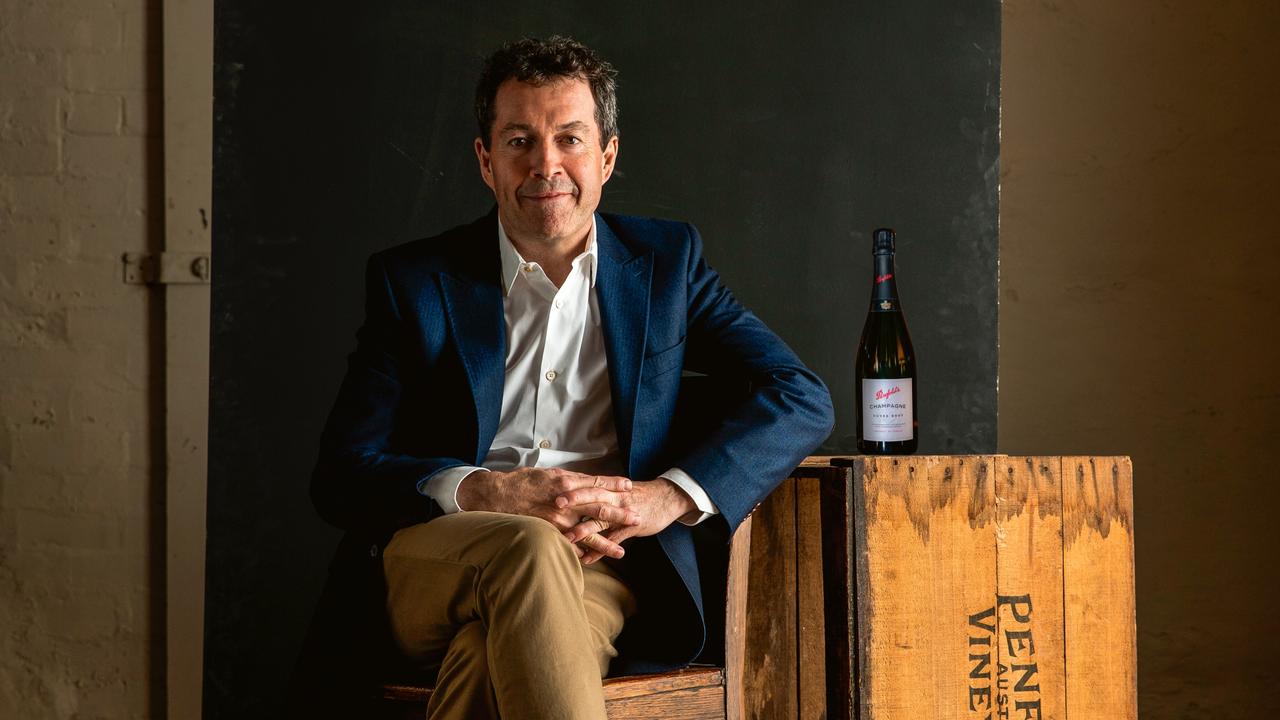Grahame Bond, aka Aunty Jack, took a slow boat down the Yangtze with 12 imperfect strangers
The man formerly known as Aunty Jack took a slow boat through China with 12 imperfect strangers
Group therapy
It was a typical Saturday morning when I found myself scanning the travel pages, again. My wife had remarked that I looked bored and suggested I choose a destination and “just go there”. Now this was a very generous offer, but it worried me that we’d only been married seven months. However, there was a proviso: as I was going alone it had to be somewhere we’d either been before, or a place she never wanted to go to. That’s how I found myself sailing down the Yangtze River in a “spittoon”, sharing a cabin with an alcoholic English accountant and a rat.
I’d been to China on three other occasions, but this time I was with an organised tour. Group travel can be a bit of a lottery but, over the three weeks of the tour, I had a lot of laughs, a few disagreements and many wonderful experiences. However, I’m not writing about any of that because it isn’t funny.
In every group, there always seems to be a “special”. Ours is Holly, a 40-something Californian. She is not quite “one” with the group – or the world for that matter – but
she keeps copious notes of everything anyone says. Holly’s most memorable quote? “Where did you say Africa was again?” Geographically challenged, she is guaranteed to dumbfound the group with at least one clanger a day.
Later, when we’re in Xi’an observing half-scale models of the Terracotta Warriors, I can’t resist the temptation of jokingly asking the guide, “Is it true that 2000 years ago, the Chinese were only half the size?” Immediately, Holly chimes in with, “God damn it, Gram, that’s exactly what I was gonna ask!”
Of course, we have the token Kiwi couple, Bull and Kum (Bill and Kim). Bull sounds like
he is talking through a mouthful of wet felt and Kum, we think, is on another tour. There is also a young Canadian called Mandy, who starts off professing proudly to be a North American but, after three weeks with Holly, finally disassociates herself and becomes a Far North-North American.
Our first night in China is in the delightful river town of Yangshou. The next day we cycle to Moon Hill and are immediately attacked by a horde of postcard bandits. Young and not-so- young women swoop like vultures bearing postcards, water and beer. The assault is relentless but I manage to sidestep them, escaping to the little men’s room. Midstream, I hear a woman’s voice at the next urinal: “Mister, you want postcard?” From that point on I become this seller’s personal property. For the full 800 steps to the top of the mountain, I am fanned with the postcard I’d just purchased. Exhausted, I reach the summit, where I’m held to ransom for
50 yuan ($7.50) for a small bottle of water.
In preparation for our three-day Yangtze boat cruise, we are advised to buy three packs of instant noodles as the food on board is apparently inedible – not a good start. It’s also suggested we purchase Toilet Duck and our own alcohol (obviously to kill anything we might catch). Being a virgin when it comes to selecting Chinese wines, I put my choice in the hands of the Wuhan sommelier/checkout chick, who suggests the Great Wall White. It sounds impressive, but has a strong nose of vinegar, with just a hint of petrol.
Anyway, I prefer red and need something elegant to go with the instant dried-beef noodles, so I buy a pricey Tibetan Shangri-La Cabernet Sauvignon. The label reads: “Shangri-La is the last unpolluted place on Earth, physically as well as mentally. The land of eternal blue skies and immaculate snow landscapes (except for a few million Chinese invaders), it is a source of excellent, rich and mellow-flavoured wine. A wine unique in style.” Hmm, “unique” is not the word; “disgusting” would probably suffice.
During the shopping experience, we hear stories of Yangtze River boats, which apparently vary in grades from 11 (good) down to one (not so good). As we are lowered down to the river by a giant inclinator, the age and squalor of our vessel becomes apparent. We’ve scored a minus-three. We’re escorted to our mid-level cabins up a sweeping staircase scarily reminiscent of the stairs on the Titanic.
Eventually, I arrive at cabin 2005 – a good year, but not in cabins. A quick checklist of the room: plastic flowers; two single beds with plywood mattresses; a bathroom whose toilet, when flushed, floods the tiny shower to ankle height (apparently urine is a cure for tinea). Oh, and the water from the shower sprays everything in the room, including the used toilet paper bin. At 3am I’m woken by my young Pommy roommate, intoxicated and crashing around in the dark cabin, trying unsuccessfully to find his Blackberry to text his chums in the Old Dart. He does, however, discover a giant water rat swimming laps in our shower recess. When I turn on the light, he leaps on to his bed, shrieking, “Eek, a rat!” Must be why they lost the empire.
The next morning we transfer from our spittoon to a small, traditional wooden boat with four rowers and head upstream to a smaller gorge. One rower has dressed for the occasion, wearing a suit jacket, white shirt and loose-fitting, white Y-fronts that ride up as he rows. A promotional book passed around shows period black and white photos of young, muscular rowers exposing their naked buttocks as they plough through the rapids. This tradition stopped 15 years ago because the rowers were embarrassed in front of tourists. Thus the new jacket-and-undies look.
After three days of cruising, we leave the boat at Chonquing and face a steep climb to the town. A particularly greedy porter scares away the other carriers, seizing everyone’s luggage and attempting to scale the 1000 steps to the bus terminal with it.
Next is Leshan to see the Giant Buddha, all 70m of him carved out of a cliff face. Sadly, it’s impossible to view the big fella as he is heavily shrouded in a thick cloud of smog. Plus we are confronted by the entire population of China: all 1.3 billion of them have decided to visit the Buddha on the same day. Because of this, I only manage to see the 10m of his head. So, I leave the masses to the rest of him and escape to a garden area for a quick soup. In Leshan they don’t skimp on their chicken soup, you get the lot – skull, beak, cockscomb and all. I try to wash away the memory with a type of green tea that leaves me with lemon lips for a week.
Chengdu City is the place to see pandas and, believe me, we see every type of panda:
two-week-olds, four-month males, one-year females, and on it goes. There are panda sculptures, panda souvenir shops, detailed films of pandas birthing and, for a mere $100, you can have a photograph taken with a baby panda – as long as you wear surgical gloves, slippers, a mask and don’t get close enough to breathe on it. I pass.
Holly is at it again. I watch her relentlessly cross-examine a cyclo driver. “How’s AIDS going over here?” she persists, but he doesn’t understand the question. I inform her that I think it’s doing very well. She writes this in her book.
Our journey to the sacred mountain of Emei Shan is unforgettable. We take off by bus with the driver from hell, up a steep mountain road with 500 hairpin bends and no guard rails. Our driver hurls the tired old bus through the bends like a racing driver on acid, overtaking on blind corners, riding the horn, and constantly looking over his shoulder to gauge our reaction. To take our minds off the nightmare, we start our favourite Chinese singalong: “I love you, like mice love rice.”
We arrive at the cable car three hours later, ready for “a bit of an obstacle course” past packs of aggressive Macau monkeys. Each of us is supplied with a sturdy walking stick, obviously to beat their brains out should they attack. The first assault occurs when the American forgets that the little beasts charge at the sight of food or water. Her banana and bottle of soft drink drives the chief of the tribe – an ugly, red-bottomed gent – into a frenzy. Afterwards, when someone asks what she thought she was doing, Holly replies: “I didn’t think today was monkeys.”
Travelling in China isn’t easy and this is my fourth trip, so obviously there’s something pretty special about the place. As for the touring party, the good news is that, on the last night, the group bonds. I think it’s the relief that we will never have to see each other again. Three weeks is a long time to spend with 12 strangers but, I have to say, it was never boring.


